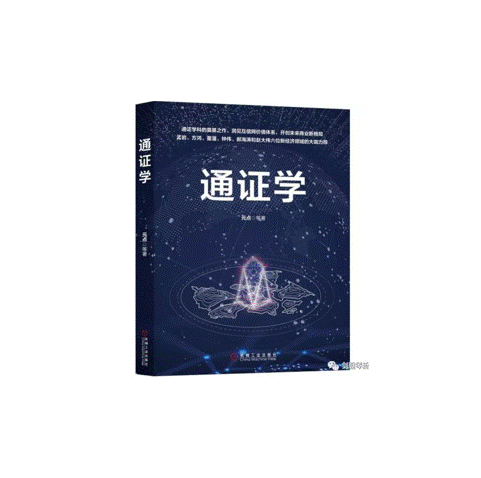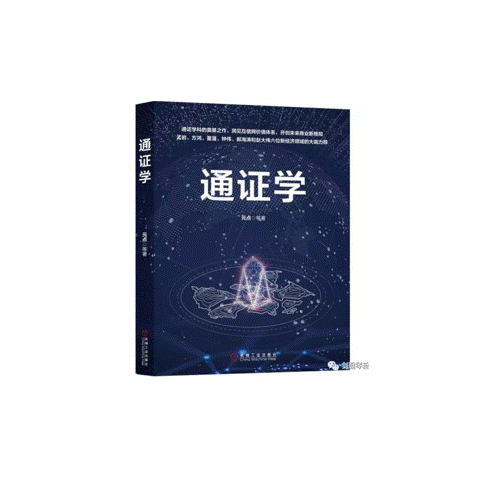I reread the relevant chapters of the manuscript for Tokenology and even used a search engine to help me.
I wanted to confirm whether the published version of Tokenology mentioned why this name was chosen.
It didn’t.

So today, I’ll talk about the process.
Actually, in 2018, the industry term used by peers was “token economy.” However, I had doubts about this term. At that time, I had the opportunity to meet Professor Meng Yan and consult him on this issue (Professor Meng first translated ‘Token’ into “通证,” as detailed in Tokenology). I expressed my intention to write a book titled Tokenology, sharing my thoughts on the book and the title. Below are my thoughts at the time.
First, I wanted to choose a shorter name.
The reason was that in the movie version of The Social Network, Mark Zuckerberg‘s investor gave him his first piece of advice:
Change “The Facebook” to “Facebook.” This is shorter.
I also prefer this, as it is simpler and more straightforward.
Most importantly, my understanding of tokens made me firmly believe that I wanted to write about tokens, not token economy.
A simple analogy: in token economics, tokens were still referred to as “tokens” by various media outlets around 18 years ago and even now. Those who use this term believe that ‘token’ refers to currency, hence the term “代币.”
This understanding is superficial. Are NFTs referring to currency? Clearly not. Not to mention the numerous new protocols defining tokens.
Secondly, according to the above theory, “token economy” is equivalent to “token economy,” which is equivalent to “currency economy.” However, I have studied monetary economics and know that what I am writing is not a new version of “Monetary Economics.” What is “Monetary Economics”?
Nobel laureate Milton Friedman once wrote a book titled Monetary Economics. You can review the table of contents (first-level directory) of this book:
- The Counter-Revolution in Monetary Theory
- Monetary Adjustment
- Memorandum: Responses to a Monetary Policy Questionnaire
- Unemployment and Inflation?—An Evaluation of the Phillips Curve
- Inflation and Unemployment: A New Dimension in Political Science
- Inflation, Taxation, and Indexation
- From Galbraith to Economic Liberalization
- Selling Housing or Implementing Preferential Rent Controls
I know I certainly didn’t set out to write a book like this. In academic terms, monetary economics is the discipline that studies the role of money in the economy, focusing on money demand, supply, monetary policy, inflation, financial markets, and exchange rates. It analyzes why and how individuals and businesses use money, as well as how central banks influence the economy by controlling the money supply. Additionally, it explores the impact of changes in price levels on the economy and the role of money in international finance. This discipline is crucial for formulating economic policies and understanding macroeconomics.
However, I aim to contribute to the framework development, system construction, theoretical innovation, and ultimate vision of “Tokenomics.” I hope to spark interest among academic and industry professionals, encouraging them to conduct research and enrich the knowledge system of Tokenomics. I look forward to a future where China can also produce Nobel Prize winners in economics and giants like Coase in the digital economy era.
Finally, I do not want this to be a bestseller or a book that chases trends. I hope it can contribute to and promote this industry and field. For this reason, I insisted on keeping the title extremely simple: “Tokenomics,” without any subtitle. I thank the editor-in-chief for indulging my whims. Over the years, I have never formally expressed my gratitude to you. At the book launch event, I invited two friends who have also published books. Their books have sold 300,000 copies and several thousand copies respectively. When they shared their experiences, they emphasized that when writing a book, one must understand what the target readers want to see and tailor the content accordingly.
When I wrote this book, my target audience was myself. The author of White Deer Plain said that his initial intention when writing this novel was my ultimate goal.
Edward:
Over the past six years, I have continued to observe, think about, question, and experiment with this field. The details of this process are omitted for now.
There are a few actions:
- I coined two new terms:
- tokenology, the study of tokens;
- tokenologist, tokenologist: token expert, token scholar, token researcher;
- Registered two domain names:
- token-ology.com, tokenology
- token-ologist.com, tokenologist
- The second edition of Tokenology has been decided to be published after communicating with the original book’s editor, and an English version will be published simultaneously.
Appendix
Monetary Economics by Friedman, Primary Table of Contents
- The Counter-Revolution in Monetary Theory
- Monetary Adjustment
- Memorandum: Responses to a Monetary Policy Questionnaire
- Unemployment and Inflation? — An Evaluation of the Phillips Curve
- Inflation and Unemployment: A New Dimension in Political Science
- Inflation, Taxes, and Indexation
- From Galbraith to Economic Liberalization
- J. K. Galbraith’s Traditional Wisdom
- The Path to Economic Freedom: Steps from Here to There
- Selling Housing or Implementing Rent Controls? A Dialogue with George Stigler on Current Housing Issues

